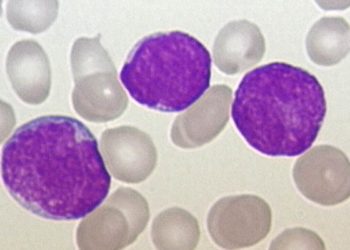Biomarkers obtained in the ED show limited utility in predicting pneumonia severity in children
1. In a study of children with community acquired pneumonia, initial biomarker levels (C-reactive protein, white blood cell count, procalcitonin, absolute neutrophil count) were similar across illness severities.
2. Higher C-reactive protein and procalcitonin levels were predictive of specific severe outcomes, including empyema requiring chest drainage and septic shock.
Evidence Rating Level: 2 (Good)
Study Rundown: Community acquired pneumonia (CAP) is one of the most common conditions treated by pediatricians, yet predicting disease severity and prognosis is often difficult at the initial presentation. Previous studies on adults indicate that the biomarkers C-reactive protein (CRP), white blood cell (WBC) count, absolute neutrophil count (ANC), and procalcitonin may be associated with disease severity. Authors of this prospective cohort study evaluated whether the same was true in children aged 3 months to 18 years with suspected CAP who presented to the emergency department (ED). In the group of 477 children included in the analysis, there were no statistical differences in median WBC count, CRP level, ANC, or procalcitonin level across 4 different categories of disease severity. However, when specific outcomes were examined, CRP and procalcitonin levels were higher in those developing complicated pneumonia requiring chest tube placement and sepsis requiring vasoactive medications. Additionally, all biomarkers had high negative predictive values (NPV) in differentiating severe from non-severe disease and may therefore be useful in ruling out severe outcomes. Although this was a single center study which potentially limits its generalizability, it was larger than most previous studies examining biomarkers in CAP. Overall, the findings suggest that these biomarkers are generally not helpful in discriminating children with CAP who will go on to develop more severe outcomes from those who will not.
Click to read the study, published today in Pediatrics
Relevant Reading: Predicting severe pneumonia outcomes in children
In-Depth [prospective cohort]: This prospective cohort study included 477 children aged 3 months to 18 years (mean age 5.6 years, 52.6% male, 67% white) over a 4-year period who presented to the ED with signs and symptoms of lower respiratory tract infection (LRTI), had focal findings on chest x-ray (CXR) indicative of CAP, and had blood drawn. Children with immunocompromising or chronic medical conditions predisposing them to severe or recurrent pneumonia were excluded from the study. The primary outcome was disease severity, categorized as mild, mild-moderate, moderate-severe, and severe. Overall, median WBC count (P=0.24), ANC (P=0.26), CRP level (P=0.6), and procalcitonin level (P=0.21) were not associated with disease severity. However, all exhibited NPVs above 0.90 for the selected threshold values, making them helpful in ruling out severe disease. In models adjusted for age, antibiotic receipt before arrival, fever duration, and viral pathogen detection, CRP was modestly associated with disease severity (mild vs. more severe disease, OR 1.19, 95% CI 1.04-1.35). When individual outcomes were examined, CRP and procalcitonin levels were moderately associated with development of complicated pneumonia, infections requiring chest drainage, or septic shock.
Image: PD
©2020 2 Minute Medicine, Inc. All rights reserved. No works may be reproduced without expressed written consent from 2 Minute Medicine, Inc. Inquire about licensing here. No article should be construed as medical advice and is not intended as such by the authors or by 2 Minute Medicine, Inc.







